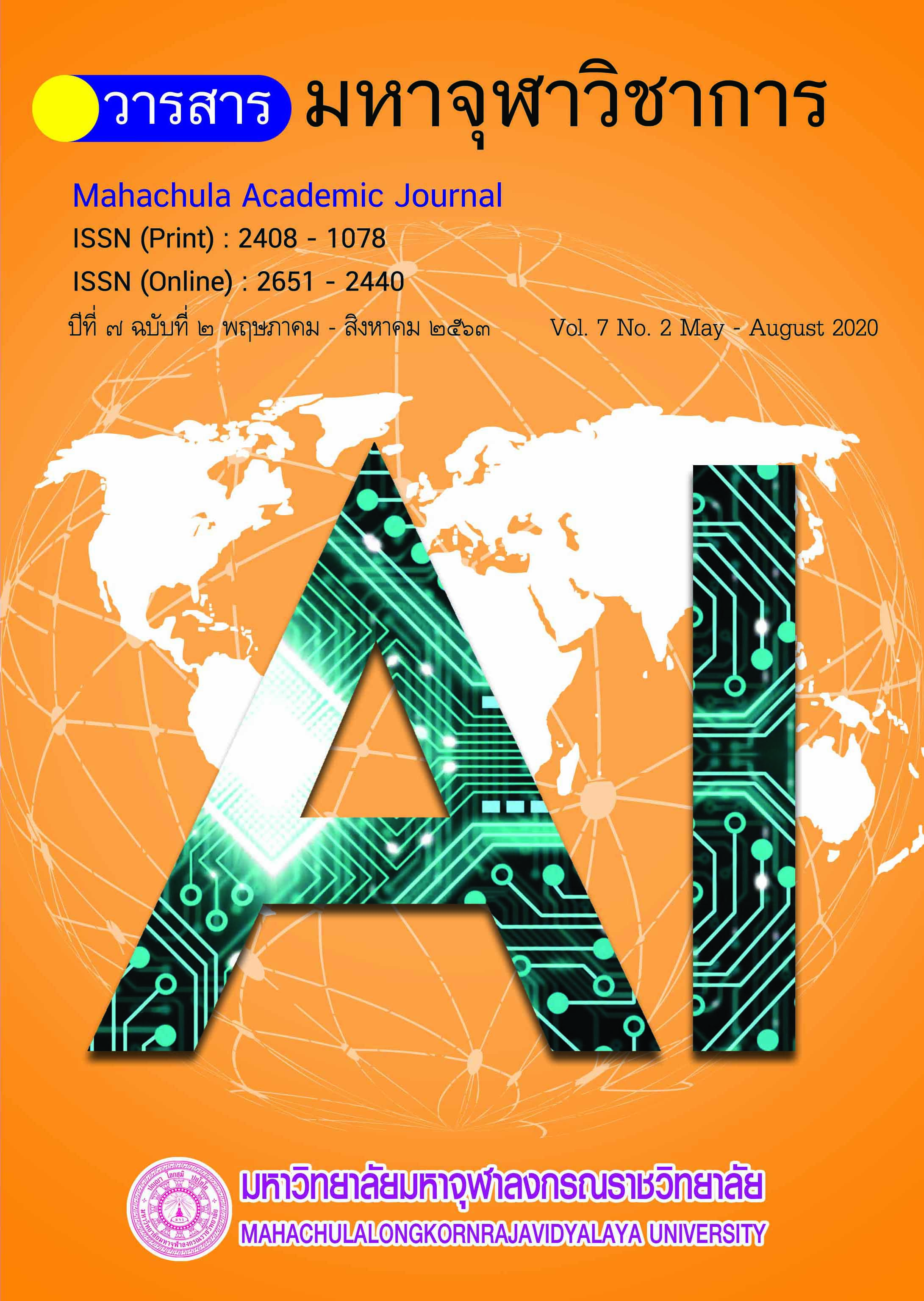Application of the Concept of King’s Sufficiency Economy Philosophy for Development of Community Economy: A Case Study of Ban Thungsri, Thungsri Sub-District, Rongkwang District, Prae Province
Main Article Content
Abstract
This research project had three objectives: - 1) to study the application of the concept of King’s sufficiency economy philosophy for the development of community economy in the village, 2) to study current situations and problems of development of community economy in Ban Thungsri, Thungsri sub-district, Rongkwang district, Prae province, and 3) to present the model of development of community economy according to the concept of sufficiency economy philosophy. The research methodology is mixed among documentary research and field qualitative research following up on the research objectives.
From the research, it was found that the application of the concept of King’s sufficiency economy philosophy for the development of community economy in the village is emphasized on self-reliance into three levels, i.e. family self-reliance, group’s self-reliance, and community’s self-reliance. Proper activities of applications of peoples in this village are balanced in their daily lives both of family and village. The current situation of the economic development of peoples in this village is emphasized on the family’s levels with farmers. Their problems effected to applying the sufficiency economy philosophy are of the water problem, production problem, and scholarship problem. In the last one, the model of application of this philosophy has two kinds: Application of them into families and group level. The factors of success about it consisted of: Leaders, labors, goals, spirit mind, and continuous activities of each group in the village.
Article Details
References
ชิตาภรณ์ ทองชอุ่ม. “การปฏิรูปหลักสูตรเศรษฐศาสตร์บัณฑิตที่สอดรับกับแนวคิดเศรษฐกิจพอเพียง”. วิทยานิพนธ์เศรษฐศาสตร์ดุษฎีบัณฑิต. บัณฑิตวิทยาลัย : จุฬาลงกรณ์มหาวิทยาลัย, ๒๕๕๑.
ชัยอนันต์ สมุทวณิช. ทฤษฎีใหม่ : มิติที่ยิ่งใหญ่ทางความคิด. กรุงเทพมหานคร : สถาบันนโยบายศึกษา, ๒๕๔๑.
มหาจุฬาลงกรณราชวิทยาลัย. พระไตรปิฎกภาษาบาลี ฉบับมหาจุฬาเตปิฏกํ ๒๕๐๐. กรุงเทพมหานคร : โรงพิมพ์มหาจุฬาลงกรณราชวิทยาลัย, ๒๕๓๕.
มหาจุฬาลงกรณราชวิทยาลัย. พระไตรปิฎกภาษาไทย ฉบับมหาจุฬาลงกรณราชวิทยาลัย. กรุงเทพมหานคร : โรงพิมพ์มหาจุฬาลงกรณราชวิทยาลัย, ๒๕๓๙.
รัฐธรรมนูญแห่งราชอาณาจักรไทย พ.ศ. ๒๕๕๐. ราชกิจจานุเบกษา เล่ม ๑๒๔ ตอนที่ ๔๗ ก วันที่ ๒๔ สิงหาคม ๒๕๕๐.
สำนักงานคณะกรรมการพัฒนาเศรษฐกิจและสังคมแห่งชาติ. สรุปสาระสำคัญแผนพัฒนาเศรษฐกิจและสังคมแห่งชาติ ฉบับที่ ๙. กรุงเทพมหานคร : สำนักงานคณะกรรมการพัฒนาเศรษฐกิจและสังคมแห่งชาติ, ๒๕๔๒.
สำนักงาน กปร.. ๖๐ ปีครองราชย์ ประโยชน์สุข ประชาราษฎร์. ทฤษฎีใหม่ ชีวิตที่พอเพียง. พิมพ์ครั้งที่ ๒. กรุงเทพมหานคร : สำนักงาน กปร., ๒๕๕๐.
พิพัฒน์ ยอดพฤติการ. “การใช้การสร้างตัวชี้วัดเพื่อวิเคราะห์เศรษฐกิจพอเพียงโดยเปรียบเทียบกับหลักพุทธศาสตร์”. วิทยานิพนธ์พุทธศาสตรดุษฏีบัณฑิต. สาขาวิชาพระพุทธศาสนา : มหาวิทยาลัยมหาจุฬาลงกรณราชวิทยาลัย, ๒๕๔๙.
ปิยะรักษ์ ประดับเพชรรัตน์ และคณะ. “ศักยภาพในการลดปริมาณขยะชุมชนจากโครงการธนาคารขยะรีไซเคิล”. รายงานการวิจัย. วารสารการจัดการสิ่งแวดล้อม ปีที่ ๖ เล่มที่ ๒ (กรกฎาคม-ธันวาคม ๒๕๕๓).
วีระศักดิ์ สมยานะ. “คุณธรรมกับการพัฒนาเศรษฐกิจชุมชน ขององค์กรปกครองส่วนท้องถิ่น จังหวัดเชียงใหม่”. บทความวิจัย. วารสารมหาวิทยาลัยศิลปากร (Silpakorn University Journal), ปีที่ ๓๓ ฉบับที่ ๒ (กรกฎาคม-ธันวาคม ๒๕๕๖).
สุวุฒิ วรวิทย์พินิต วรรณวีร์ บุญคุ้ม และนรินทร์ สังข์รักษา. “การพัฒนารูปแบบการจัดการศูนย์การเรียนรู้ วิถีเมืองเพชรตามแนวทางปรัชญา ของเศรษฐกิจพอเพียง”. บทความวิจัย. วารสาร Veridian E-Journal, Silpakorn University, Vol. 10 No 2 (2017). ฉบับภาษาไทย มนุษยศาสตร์ สังคมศาสตร์ และศิลปะ (พฤษภาคม – สิงหาคม ๒๕๖๐).
นิสรา ใจซื่อ. “ปัจจัยที่มีความสัมพันธ์กับความสำเร็จในการเป็นหมู่บ้านเศรษฐกิจพอเพียง”. รายงานวิจัย. ศูนย์วิจัยมหาวิทยาลัยธุรกิจบัณฑิตย์ : มหาวิทยาลัยธุรกิจบัณฑิตย์, ๒๕๕๗.
ประมวลพระบรมราโชวาทและพระราชดำรัส. “คำว่าเศรษฐกิจพอเพียง”. [ออนไลน์]. แหล่งที่มา : www. Sa.ku.ac.th/king-spku/2517-1.htm [ ๑๘ กันยายน ๒๕๖๐].


